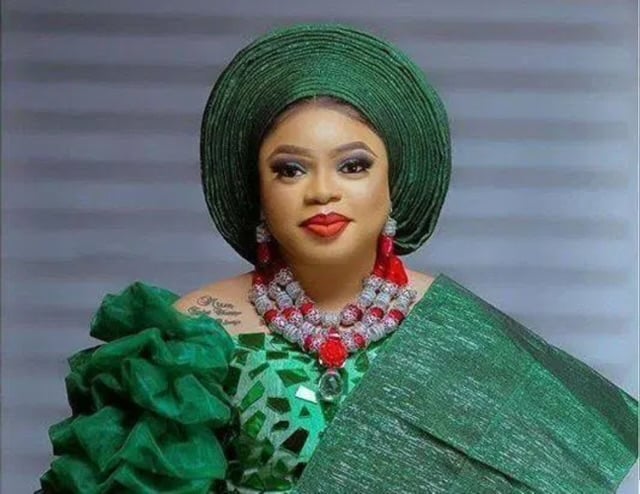Social media figure Okuneye Idris, better known as Bobrisky, recently faced a significant ordeal when he was detained by immigration officials while attempting to board a KLM flight bound for Amsterdam. The situation escalated quickly, as Bobrisky took to Instagram to describe the incident, alleging that he sustained injuries during his confrontation with the officers. He accused the Economic and Financial Crimes Commission (EFCC) of being behind his detention and pleaded for help from his followers, stating, “Nigerians help me, EFCC just arrested me. I’m badly injured.” This account marked a troubling chapter in Bobrisky’s ongoing legal issues, which have been closely monitored by the media and his followers.
The complications for Bobrisky began on October 22 when he was intercepted at the Seme border as he was reportedly trying to leave Nigeria. This event came after a series of legal troubles that escalated dramatically. In April 2024, he received a six-month prison sentence from the Federal High Court in Lagos for engaging in naira abuse, an offense that has serious ramifications in Nigeria’s financial landscape. After serving only three weeks of his sentence at Kirikiri Prison, rumors circulated that he had been released early, allegedly in exchange for a bribe amounting to ₦15 million, raising questions about corruption and fairness within the judicial and penal systems.
In late September, further complications arose when fellow influencer VeryDarkMan leaked an audio recording that suggested Bobrisky had made controversial claims against prominent Nigerian figures, specifically music artist Falz and his father, Femi Falana, a respected human rights lawyer. In the audio, Bobrisky purportedly alleged that the Falana duo sought a ₦10 million fee to facilitate a presidential pardon for him. This revelation ignited a firestorm on social media, as it cast doubt on Bobrisky’s credibility and integrity while also drawing intense scrutiny toward the individuals mentioned.
As the controversy simmered, Falz and Femi Falana eventually issued a demand for a public apology and retraction from Bobrisky, asserting that his claims were defamatory. They expressed their outrage at being implicated in such serious allegations, which could tarnish their reputations and philanthropic engagements. Bobrisky, on his part, denied having made such statements, insisting that the accusations should be directed at VeryDarkMan. This defensive stance could be seen as an attempt to deflect blame and maintain some degree of public support amid these turbulent controversies.
The series of events has placed Bobrisky at the center of a wider conversation about accountability and transparency within Nigeria’s influencer culture and legal system. His challenges highlight the precarious relationship between public figures and the legal framework in which they operate. Bobrisky’s combative persona, coupled with his social media influence, has created a complex dynamic wherein his actions and statements are scrutinized, often leading to public debates about the ethics of influencer culture, the role of media in amplifying controversies, and the implications of celebrity actions on societal norms.
Moving forward, Bobrisky’s situation serves as a cautionary tale not only for influencers but also for anyone attempting to navigate the increasingly complex intersection of fame, legality, and public perception. His experiences may lead to calls for more robust regulations concerning the behaviors of social media personalities, especially those whose actions carry legal implications and societal impact. As the narrative continues to unfold, many are left wondering how Bobrisky will resolve his legal challenges and what this means for his influence moving forward in the Nigerian social media landscape.














